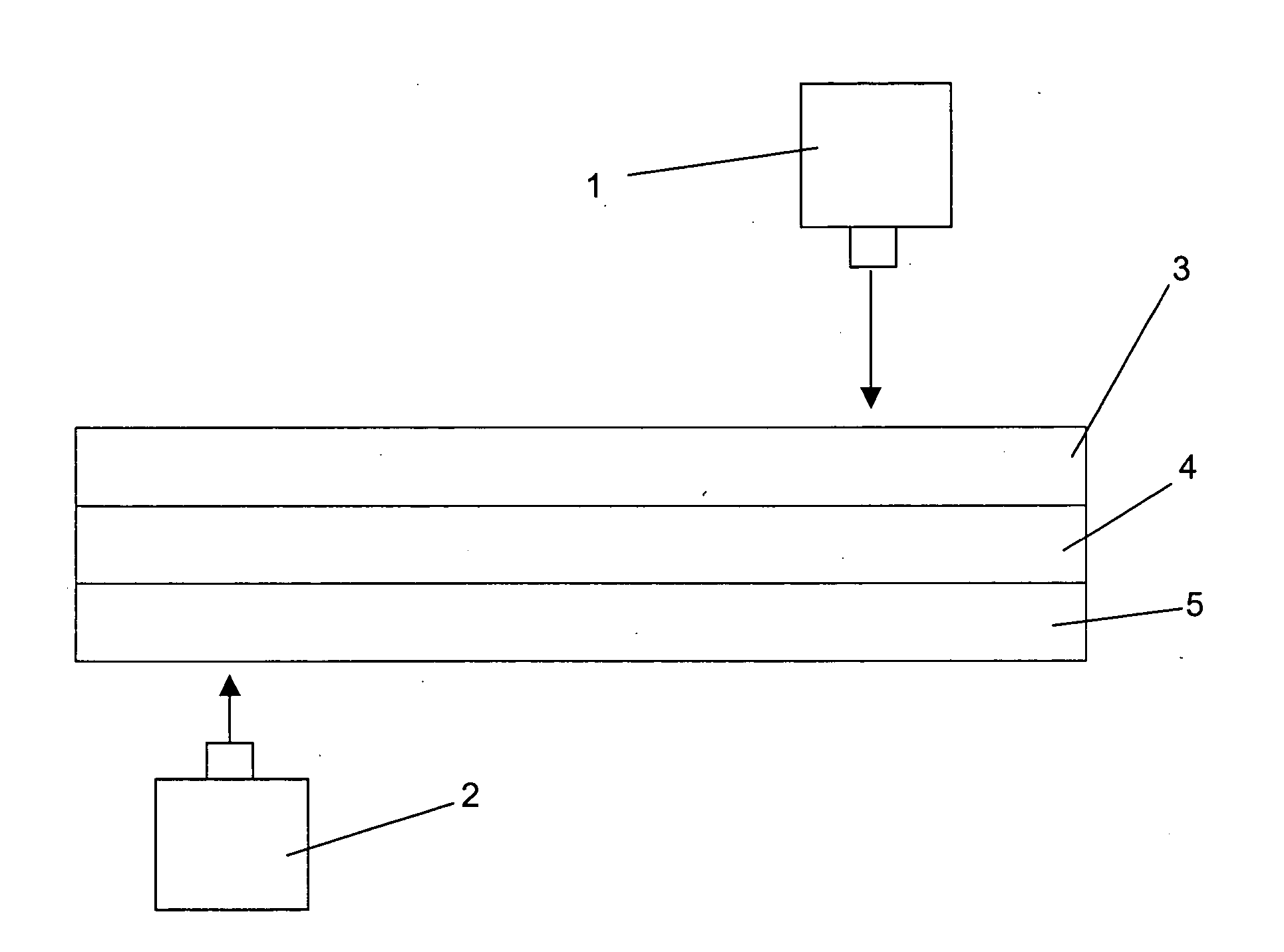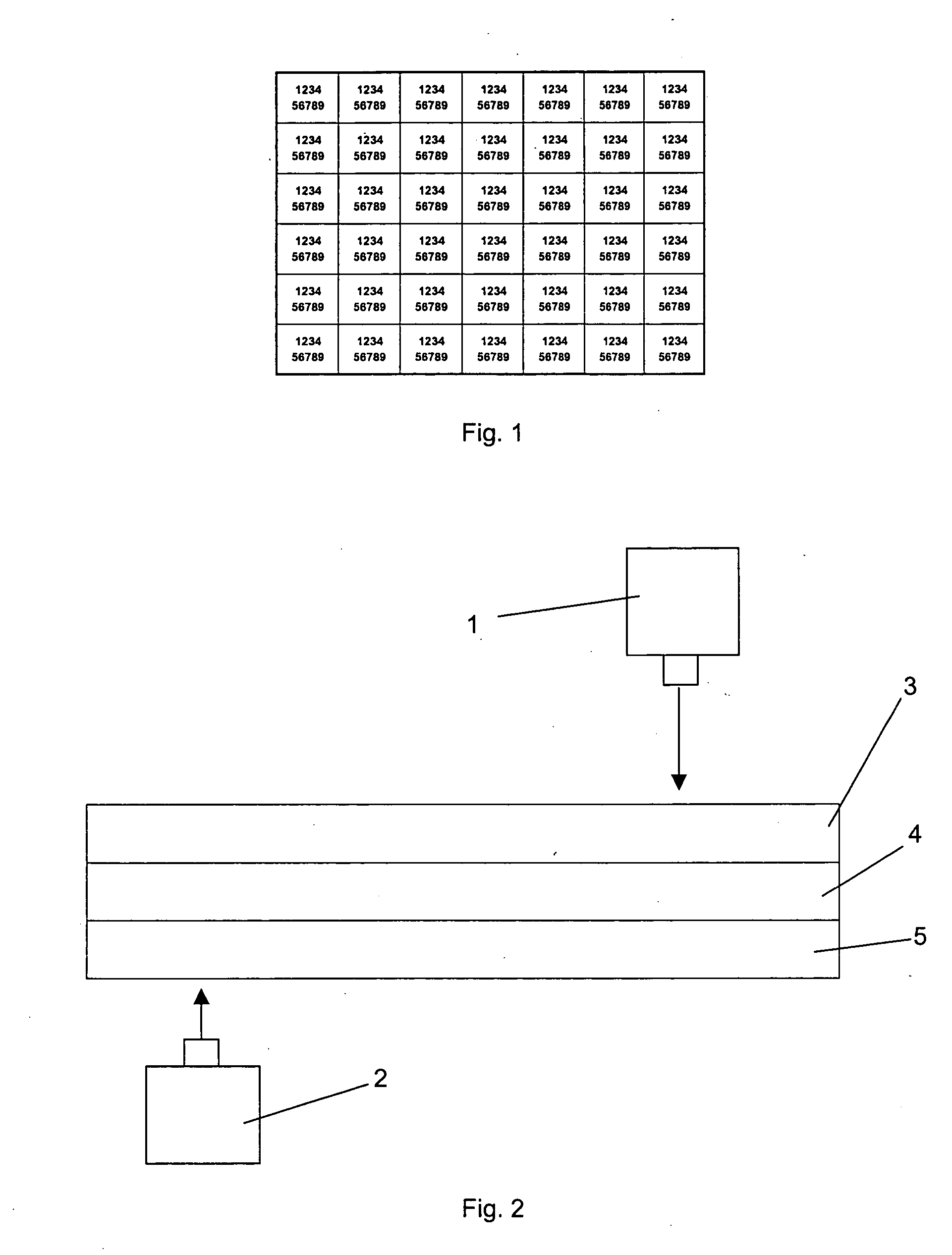Method for particle production
- Summary
- Abstract
- Description
- Claims
- Application Information
AI Technical Summary
Benefits of technology
Problems solved by technology
Method used
Image
Examples
Embodiment Construction
[0039] The present invention will be described further, by way of several non-limiting examples of a method of producing a batch of micro particles in accordance with the invention.
[0040] A sheet of suitable substrate typically 30 cm by 30 cm, such as a plastic / metal laminate with the metal layer applied via vacuum deposition or a plastic sheet, is adhered to a flat and inert support, preferably a flat sheet of glass by means of a suitable adhesive. A spray adhesive such as 3M Spray Mount Adhesive has been found to be particularly suitable.
[0041] The support, along with the substrate adhered thereto, is mounted on a stage movable in a plane perpendicular to a laser system. Movement of the stage in x-y coordinates is controlled by a computer.
[0042] The computer controls operation of the stage and the laser system such that the laser system marks the substrate with the desired code, preferably through the use of a mask marking several areas at once. The marking can be performed in ...
PUM
| Property | Measurement | Unit |
|---|---|---|
| Time | aaaaa | aaaaa |
| Transmission | aaaaa | aaaaa |
| Adhesivity | aaaaa | aaaaa |
Abstract
Description
Claims
Application Information
 Login to View More
Login to View More - R&D
- Intellectual Property
- Life Sciences
- Materials
- Tech Scout
- Unparalleled Data Quality
- Higher Quality Content
- 60% Fewer Hallucinations
Browse by: Latest US Patents, China's latest patents, Technical Efficacy Thesaurus, Application Domain, Technology Topic, Popular Technical Reports.
© 2025 PatSnap. All rights reserved.Legal|Privacy policy|Modern Slavery Act Transparency Statement|Sitemap|About US| Contact US: help@patsnap.com



